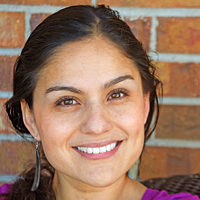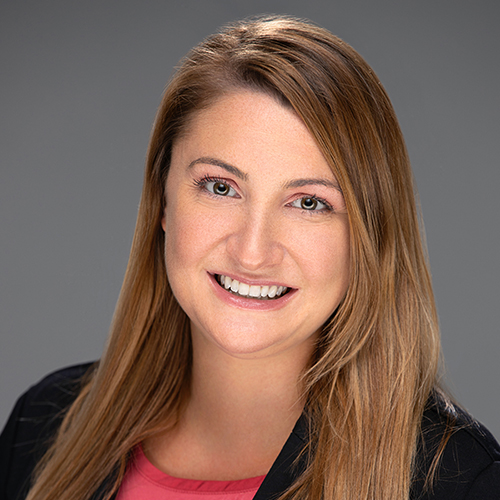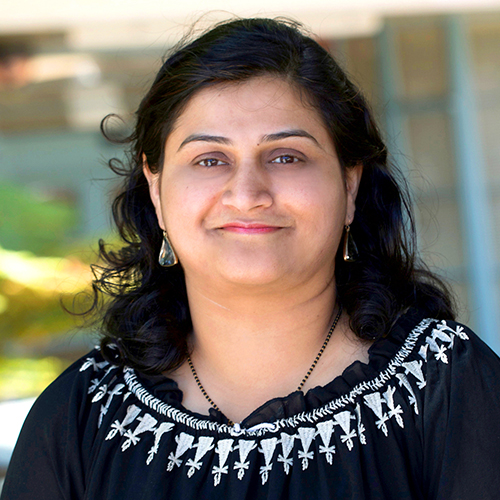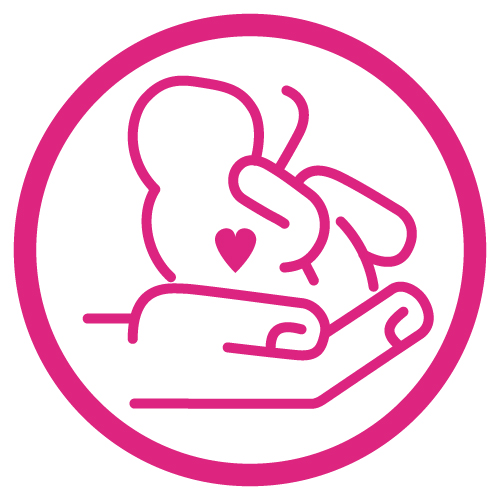 Neonatology Online Course(s) & Continuing Education
Neonatology Online Course(s) & Continuing Education
Access the latest clinical skills and research for Neonatology for Maternal Health professional training. These Neonatology online courses provide practice-changing skills and valuable perspectives from leading global experts. This Neonatology education has been accredited for a variety of CEUs / CERPs and can be accessed on-demand, at your own pace.


Paulina is the mother of three multicultural Latino children and Project Director for Lifespan Local. Paulina earned her BS in Psychology from the Pennsylvania State University, a MS in Organizational leadership from the University of Denver and is completing her PhD in Health and Behavioral Sciences at the University of Colorado - Denver. Paulina has over 18 years of experience working with families with young children. As a Maternal Child Health specialist for Jefferson County Public Health, she developed a NICU follow-up home visitation program and the pediatric emergency preparedness plan, co-founded and coordinated the Conectando Network (former Adelante Jeffco), established community navigation and lactation support groups focused on the Latino Spanish speaking community, and lead other initiatives to support leadership and partnerships among communities and organizations. During the COVID-19 pandemic, she managed the new program Whole Community Inclusion to ensure the pandemic response and recovery implementation included health equity practices that recognize the needs and the strengths of priority populations in the county. Her areas of current work include promoting perinatal and infant mental health along the continuum of care; building community capacity to navigate health and education systems; facilitating organizational change to embrace linguistic and culturally responsive practices; and establishing community-placed participatory programs to strengthen communities. She likes to be with people, learn from and with others, and connect passions for meaningful work.
Topic: From the NICU to the home: mother’s experiences - [View Abstract]
Topic: Leadership Skills in Lactation: Make Extraordinary Things Happen - [View Abstract]
Topic: Liderazgo en Lactancia - Para Alcanzar Metas Extraordinarias - [View Abstract]
Topic: Nursing A Preemie, Perspectives For Lactation Supporters and Professionals - [View Abstract]
Lactation consultants would benefit from expanding their understanding of the impact of the NICU stay on the family; moreover, they would benefit from identifying the essential role they could play in assisting families to accomplish a positive, healthy, and smooth transition home.
Despite continuing efforts to reduce prematurely worldwide, a significant number of infants are born too early or in a fragile medical condition. Many of these infants experience a lengthy stay at the NICU. Lactation support varies across facilities, but families, especially mothers, develop strong connections with their lactation consultant. As one of their most consistent providers in the NICU, the lactation consultant has the opportunity to recognize families’ need for continuing support after discharge and strategies to protect the breastfeeding relationship, attachment, and mental health in the long term.

View Details / Enroll
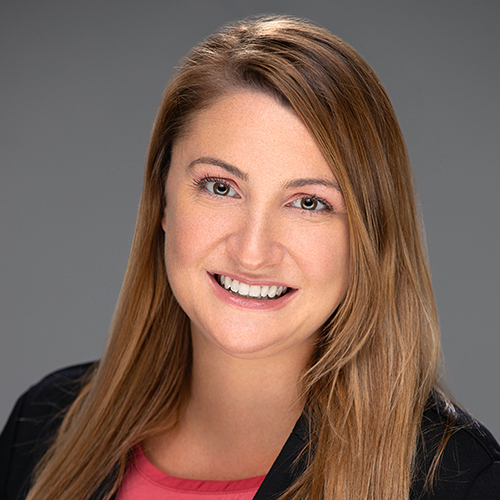

Dr. Jennifer Barnes is the Neonatal Intensive Care Clinical Pharmacy Specialist at Levine Children’s Hospital in Charlotte, NC. She has over 10 years of experience within the field. Dr. Barnes received her bachelor’s degree at Virginia Tech and her Doctor of Pharmacy at Virginia Commonwealth University’s Medical College of Virginia. She completed her pharmacy practice residency at Alamance Regional Medical Center- Cone Health. Dr. Barnes is board certified in pediatric pharmacotherapy. She is also an active member of the Pediatric Pharmacy Association (PPA) and is currently serving as the neonatology committee chair. Dr. Barnes serves as a clinical assistant professor for pharmacy advanced practice rotations for University of North Carolina, University of South Carolina, Wingate University and High Point University. Her current research areas of interest include the role of diuretics in bronchopulmonary dysplasia treatment and antibiotic stewardship for late-onset sepsis amongst other topics.
Topic: Get the LOW Down on Neonatal Hypotension - [View Abstract]
Topic: Starbucks for Babies? Caffeine Use in Neonates - [View Abstract]
At no other time does the hemodynamic status so drastically and rapidly change as the transition from fetal to extrauterine life. Neonates may experience hypotension due to delayed transition, factors of prematurity such as immature myocardium or secondary to a variety of comorbid states including but not limited to chorioamnionitis, perinatal asphyxia, hypovolemia, patent ductus arteriosus, necrotizing enterocolitis, and sepsis. The definition of hypotension and decision to treat are two of the most controversial topics within neonatology. This is in part due to great variability in blood pressure (BP) ranges among neonates and lack of supporting literature which correlate precise blood pressure values with poor clinical outcomes. Of those affected by hypotension, approximately 10-25% of infants weighing < 1500 grams at birth go on to require a vasoactive medication. Despite decades of research, there is still no definitive evidence regarding the impact of treatment for neonatal hypotension, aside from the fact that vasopressors do tend to increase blood pressure. Vasoactive medications are frequently utilized in hypotensive patients however the underlying pathophysiology should be backbone of which medication is chosen. After this presentation, the audience will have a better understanding of when to treat and benefits and risks of common pharmacotherapy agents for hypotension and shock.
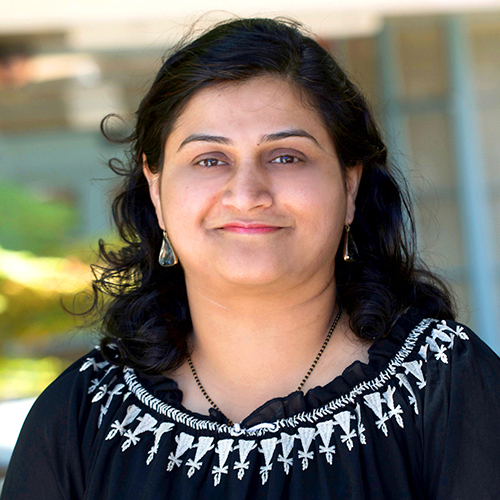

Consultant neonatal pediatrician with special interest in neonatal nutrition, probiotics, gut-brain-microbiota axis and long-term neurodevelopment. Dr Jape leads the high-risk neonatal follow-up program for her tertiary referral institute. Currently the chair for the Perinatal Society of Australia and New Zealand long-term outcomes sub-committee. Dr Jape is reviewer for national and international medical journals.
Topic: Gut-Microbiota-Brain Axis in Neonates and Infants - [View Abstract]
Recent advances in next generation sequencing have improved our understanding of the important role of gut microbiota in influencing brain development and function; i.e: 'gut-microbiota-brain' (GMB) axis. This is a bi-directional pathway where brain and gut microbes share detailed communications through immunological pathways, hormones and metabolites. GMB plays a crucial role in early brain development and function and impacts on long-term neurodevelopment and neurobehaviour. Understanding these roles is important to understand effective management and potentially prevention. This presentation will cover important aspects of GMB development, physiology, function and translation in clinical medicine for neonates and infants.

Healthy Babies: What We Can Learn from Infant Growth Charts

Dr. Gangal is a Pediatrician, Breastfeeding Trainer & Advocate in Mumbai for 30 years. He has been Mother Support-Training Coordinator of BPNI Maharashtra (1995), Co-Coordinator of Mother Support Working Group of WABA (2003) & Lactation Consultant (2009). He was chairman of Global Collaboration Committee of ILCA (2018).
He was trained by Dr. Felicity Savage. He established the first Mother Support Group in India (1995) and played a key role in training 500 Traditional Massage Women, Breast crawl rejuvenation, training Government Health Workers in 7 Indian States with an innovative module with UNICEF and organizing IBLCE exam for the first time in India (2009). He contributed to LLLI publication ‘Hirkani’s Daughters’, facilitated Lactation Counselling in 85 Maternity Facilities, organizing 8 batches of Lactation Education to facilitate about 100 Lactation Consultants, the creation of the Android app ‘Shishuposhan,’ and played a major role in launching the website www.bpnimaharashtra.org.
Dr. Gangal has multiple publications & was a speaker at LLLI conferences in San Francisco and Chicago. He was honored with Dr. N. B. Kumta Award by BPNI Maharashtra, Lifetime Achievement Award by Mumbai Breastfeeding Promotion Committee & WABA Secretariat award. He spoke on Breast Crawl & WHO Growth Charts (2016) at GOLD Conferences.
Infancy is a period of rapid growth & development. Any adversity has a profound impact on physical, mental & psychological outcomes for entire life. Growth Charts are the meter of infant’s Nutrition-Health-Nurturing & reflect any adversity. Hence, tracking infant growth is important.
The World Health Organization (WHO) released new international growth standards in 2006 to monitor growth of children 0-59 months of age. All Health Care Providers should use these charts to complement Infant & Young Child Nutrition (IYCN) Counselling. Every growth chart has a story to tell. I found WHO growth charts to be accurate and extremely useful for knowing past events and use the information to promote optimal growth and development in future. Every contact with the child in general & especially immunization is an opportunity to discuss nutrition & development. The concepts of Severe Acute Malnutrition and Mild Acute Malnutrition (SAM-MAM) need to be understood.
The Infant feeding professionals should also understand science behind WHO Growth Charts and how to use this information for ideal IYCN Counselling. Prematurely born infants need different charts for monitoring growth during infancy & experts need to be aware about the current concepts & opinions of monitoring growth of Premature & Low Birth Weight infants. Impact of individual components of breastmilk on growth is the new science frontier.

View Details / Enroll
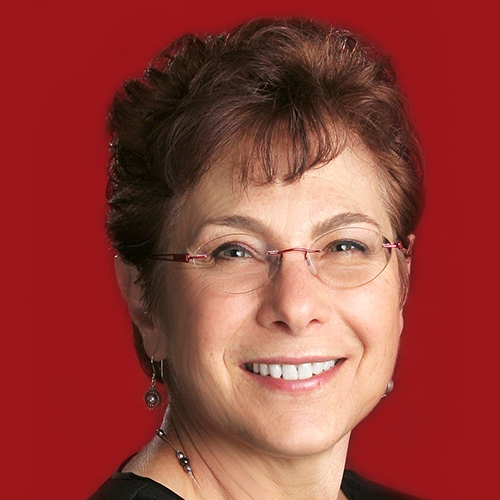
Helping Premature Babies Learn to Breastfeed: We Can Do It!

Robin P. Glass, MS, OTR, IBCLC practices occupational therapy at Seattle Children's Hospital in Seattle, WA and is an Assistant Clinical Professor in the Department of Rehabilitation, at the University of Washington. Her clinical specialty is the treatment of infants, with a strong focus on feeding and swallowing issues. She provides treatment for hospitalized infants including the NICU with a wide range of medical and developmental diagnoses. She is NDT trained and is a 20 year Board Certified Lactation Consultant. Robin has extensive national and international experience speaking about infant feeding.
Robin has received numerous awards including the National Association of Neonatal Therapists (NANT) 2015 Pioneer Award and the 2018 Nancy Danoff Spirit of Service award from the Breastfeeding Coalition of WA and Nutrition First. Robin has co-authored numerous journal articles as well as the book Feeding and Swallowing Disorders in Infancy: Assessment and Management.
Topic: Optimizing the Feeding Abilities of Premature Infants to Support Breastfeeding - [View Abstract]
Learning to breastfeed is the optimal and ideal method of feeding for any baby. For the baby born prematurely, however, there are factors related to the infant, to the environment and to the mother that can make this process more challenging. Many mother-baby dyads often leave the NICU not fully breastfeeding and continue to struggle once at home. This presentation will describe systematic, evidence based approaches to developing breastfeeding in the premature infant. It will review developmental and co-morbid factors affecting the infant’s feeding acquisition. A model pathway to develop breastfeeding will be outlined and this can serve as a template for varying NICU’s.

View Details / Enroll


Carolyn Lund has been a Clinical Nurse Specialist in the NICU at UCSF Benioff Children's Hospital Oakland for over 30 years, and is also an Associate Clinical Professor at the University of California, San Francisco.
She has contributed to knowledge of neonatal skin care through original research in the areas of skin maturation, skin integrity and adhesive damage, and bathing. Under her leadership, the first evidence-based Neonatal Skin Care Guideline was developed and evaluated in 51 nurseries in the US in 2001. She then served as team leader on revisions of guideline in 2007 and 2013 and is currently working on the 4th revision due in 2018.
In addition to neonatal skin care, Carolyn has lectured extensively on surgical care and vascular access for neonates.
An evidence-based neonatal skin care guideline has been available since 2001, and the 4th edition of this guideline was published in 2018. The unique properties of newborn and premature infant skin places them at risk for potential toxicity and skin injury. Knowledge of these differences can inform providers about improved and safer techniques in the areas of bathing, skin disinfectants, use of medical adhesives, prevention and treatment of diaper dermatitis.

View Details / Enroll
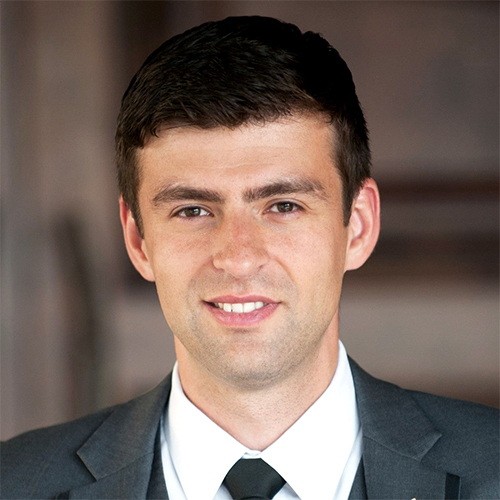
Hold the Meds: A Guide to Toxicities of Common NICU Medications

Pavel graduated from Purdue University with a BS in Medicinal Chemistry and Molecular Pharmacology and Doctor of Pharmacy. He completed his general residency at Parkview Medical Center and Pediatric Residency at University of Chicago. He is a neonatal ICU (NICU) and antimicrobial stewardship program clinical pharmacist at Nationwide Children's Hospital (NCH) in Columbus, OH. Pavel precepts pharmacy residents and students from several colleges of pharmacy while also serving as a preceptor to international pharmacy scholars from Europe, Africa, and Middle East. He is currently involved in a multicenter study to investigate barriers, enablers and opportunities for implementing neonatal antibiotic stewardship in public and private hospitals in South Africa. He is also involved in implementation of neonatal antimicrobial stewardship programs in several hospitals in Lebanon. Pavel is the principal investigator on the study evaluating interventions to reduce antibiotic use among surgical patients in the NICU: The NO-More-AntibioticS and Resistance in Surgery (NO-MAS-R-S) Study.


Karen has worn a number of hats in her nursing career but always comes back to her passion for premature babies. Her background includes NICU nurse, transport nurse and NICU educator, rural nursing, staff development, pediatrics, pediatric intensive care, and community health. For over 20 years Karen has lead Calgary’s specialized “Neonatal Transition Team”, which she will talk about today. Karen has presented locally, nationally, and internationally and has also been co-investigator in several research and quality improvement studies examining outcomes for very low birth weight infants. For nearly 30 years, Karen taught, wrote instructional material, and produced on-line courses for nurses to earn a certificate in neonatal nursing through Mount Royal University. Karen is a past-president of the Canadian Association of Neonatal Nurses and served on this national board for 12 years, and on the international board of the Council for International Neonatal Nurses for 3 years. In 2019, Along with co-author, Tammy Sherrow, Karen published the book “Preemie Care: A guide to navigating the first year with your premature baby”.
Topic: “Zooming Ahead”; Post-NICU Discharge Very-Low-Birth-Weight Infant Follow-up Program Goes Virtual - [View Abstract]
Discharge teaching programs are typically established based on what we as health care providers think parents need to know. Reality sets in very quickly for families after taking home a premature newborn. Despite thorough discharge teaching and parent involvement in hospital, parents are surprised by the challenges they face post-discharge. Feeding, behavior, reflux, sleep, and parenting troubles top the list. Based on over twenty years’ experience working with premature infants and their families beyond discharge, the presenter will reveal common challenges encountered and discuss research-based and practical strategies for the NICU team to share with parents to smooth the transition home. A greater knowledge of post discharge sequelae and preventative strategies will aid the NICU team in optimizing the discharge process and ultimately improve outcomes for babies and parents.

View Details / Enroll


Dr. Narvey began his training in Pediatrics at the University of Manitoba in Winnipeg where he completed a year of further training in Neonatology. This was followed by two years of Neonatal fellowship at the University of Alberta in Edmonton. Afterwards he began his career as a Neonatologist in the same city and over the 6 years he spent there, his career included both clinical and administrative duties including 4 years as the Fellowship Program Director and two years as the Medical Director for a level II unit. In late 2010 he accepted a position in Winnipeg to become the Section Head of Neonatology and continues to hold this post. In 2016 he took on the additional role of Medical Director of the Child Health Transport Team. In 2015 he became a member of the Canadian Pediatric Society’s Fetus and Newborn Committee and in 2019 took over as Chair of the same. His interests predominantly lie in the use of non-invasive technology to minimize painful procedures during an infants stay in the NICU. He is active on social media and has a passion for fundraising and is an active board member of the Children’s Hospital Foundation of Manitoba.
Topic: Human Milk Diet and Fortification: Controversies and Evidence - [View Abstract]
Topic: Many Different Shades of Yellow - [View Abstract]
Topic: Respiratory Problems in the Newborn: Where Are We in 2022? - [View Abstract]
Topic: Sweet and Sour: Hypoglycemia in the Newborn - [View Abstract]
Research supporting the use of exclusive human milk diets will be reviewed. From there we will look at the evidence for improving both short and long term outcomes and then determine what other options exist and where we might be headed in neonatal nutrition.

View Details / Enroll
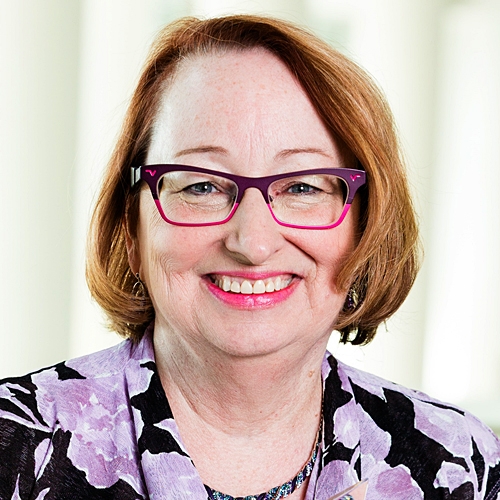
Implications of Early Life Experience and Brain Development in the Preterm Infant

Dr. Jacqueline McGrath is a Professor and Vice Dean for Faculty Excellence at the UTH San Antonio, School of Nursing. Research foci include integration of family-centered and developmentally supportive caregiving with premature infants and their families in the NICU. More specifically, her work has focused on the biobehavioral outcomes of increasing parent engagement on both parents and the infant. Increasing parent engagement is believed to be a mechanism for increasing parent self-management skills after infant discharge and ultimately enhancing infant long-term development. She has also conducted studies related to preterm infants’ oral feeding readiness and preterm infant touch and massage (parent provided). Based on her research, she developed the NICU-PLAY program for parents and their hospitalized preterm infants. She has published more than 150 peer-reviewed articles. Dr. McGrath is the Co-Editor for Advances in Neonatal Care the journal of the National Association of Neonatal Nurses. In 2007, Dr. McGrath became a fellow in the American Academy of Nursing. She received her BSN from the University of Akron; MSN from Kent State University in parent-child nursing; both a post-master’s certificate as a Neonatal Nurse Practitioner and a PhD from the University of Pennsylvania.
Parents are essential to infant brain development; high risk birth with admission to the Neonatal Intensive Care Unit (NICU) only increases their vital role. Current evidence increasingly provides direction for how best to fully engage parents through increased opportunities for both physical and emotional closeness enhancing parent-infant interactions and participation in NICU caregiving activities. Early brain development is highly affected by early experiences particularly those with parents. Parent engagement is defined as a dynamic process focused on enhancing and supporting the parent-infant experience; specifically enhancing the acquisition of skills for problem-solving and provision of appropriate infant care based on the unique infant needs. Enhancing parent engagement is one means of decreasing what has been recently documented as post-traumatic stress disorder (PTSD) often experienced by parents who must traverse the chaotic NICU environment while supporting their high-risk infant. Concurrently, the unique needs of the infant’s developing brain demands that caregiving by parent and health providers be neuroprotective matching the “expectations” for experiences that “nurture” their development.

View Details / Enroll



